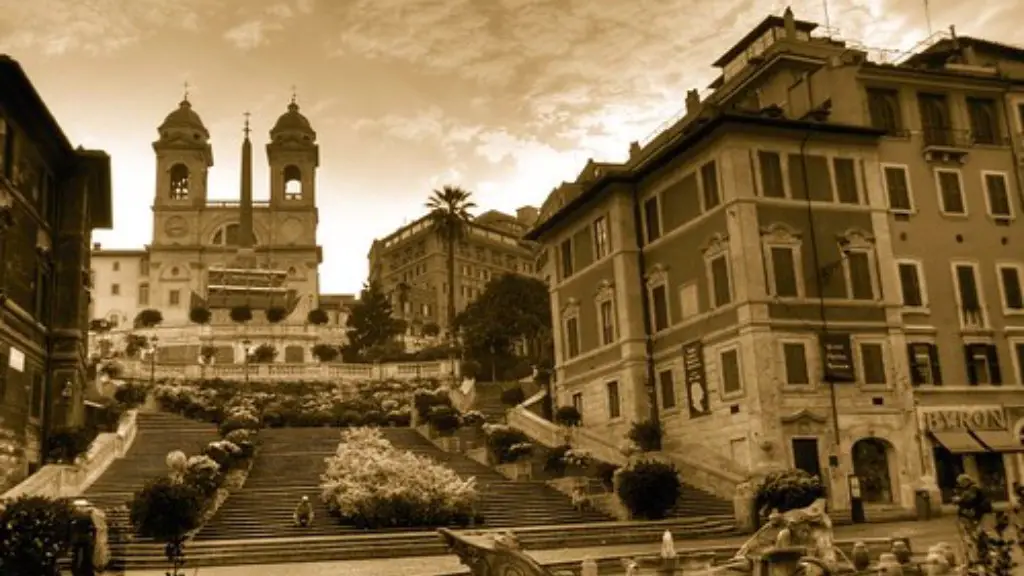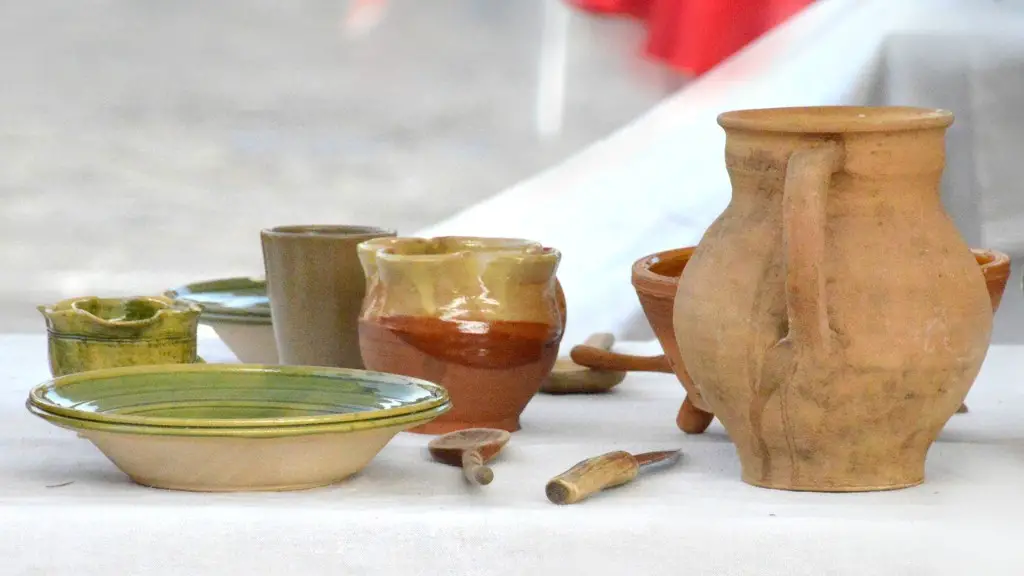Slave Society as a Factor
Slave society was an important factor in why men were reluctant to marry in ancient Rome. The slave population in Rome was very large and it was not uncommon for slave-owners to have large numbers of male and female slaves working in their homes as cooks, cleaners and other domestic roles. As a result, many men did not feel the need to marry and instead simply took advantage of the slave population to satisfy their needs. This was particularly true for wealthy men who had access to the slave population and could afford to keep them as servants. For poorer men, marriage was often too expensive, and so many chose not to marry in order to save money.
Furthermore, slavery in ancient Rome was not seen as immoral as it had been in other cultures. Slaves were legally owned and treated as property, and it was perfectly acceptable to have sexual relations with them without any consequences. This added to the reluctance of men to marry, as they were not subjected to the same moral and social codes of behavior as those that applied to free citizens.
Changing Social Norms
During the period of ancient Rome, social norms and values surrounding marriage and family changed drastically. Roman society was very patriarchal, and women were expected to be obedient and loyal to their husbands. This meant that women had little to no control over their lives and were at the mercy of their husbands. As a result, many women chose not to marry and instead remained single. For men, this was seen as a failure, and so they were often reluctant to marry someone who might not be loyal to them or to the social expectations of marriage at the time.
Additionally, marriage had become a business transaction among the wealthy families. Men were expected to pay for their brides and often the dowry a man could offer was the only consideration in whether or not an agreement was made. This led to a reluctance among wealthy men to marry, as they often saw the marriage as a financial transaction rather than a romantic one.
Fear of Commitment
The legal and social expectations of marriage during ancient Rome were very restrictive and often led to feelings of entrapment for those who chose to marry. Women were expected to obey their husbands or have no right to the possessions they had brought with them into the marriage. Men could divorce their wives at any time and the wife’s possessions would be taken away from her. This placed a great deal of power in the hands of men and led to many men being reluctant to marry, as they were afraid of the commitment that marriage required.
Furthermore, infidelity was also a problem in ancient Rome. Divorce was frowned upon, but men could take up mistresses with impunity and it was seen as a sign of a man’s power and strength if he was able to have a mistress. This meant that men often chose not to marry and instead took up mistress in order to maintain the appearance of power and strength.
The Stigma of Celibacy
Celibacy was seen as highly shameful in ancient Rome and those who chose to remain unmarried were often subjected to ridicule and rejection from society. This made it difficult for men who wanted to remain single, as they were often pressured to marry in order to restore their standing in society. This pressure added to the reluctance of men to marry, as they were seen to be in a disadvantaged position if they chose to remain single.
In addition to this, celibacy was also seen as a bad omen and it was believed that those who chose to remain unmarried would bring bad luck to the city. This was another factor that contributed to some men’s reluctance to marry, as they did not want to risk bringing misfortune to their city.
Interpretation of Ancient Laws
The laws of ancient Rome were complex and often had multiple interpretations that could be used to suit a person’s needs. This added to the reluctance to marry, as men could use the loopholes within the laws to dodge the responsibilities of marriage and still remain within the law.
Furthermore, some of the laws of ancient Rome encouraged unmarried men to stay away from marriage too. This was especially the case for men who were considered to be property owners. These men were encouraged to buy and sell land instead of marrying, as this would bring them more financial and social advantages. This led to a reluctance to marry, as it was seen as being more beneficial for these men to remain single and use their inherited wealth to their advantage instead.
Gender Roles of Ancient Rome
The roles of men and women in Ancient Rome were very different and this added to the reluctance of men to marry. Men were expected to be the breadwinners and providers for the family and women were expected to remain in the home and manage the domestic duties and children. This often led to a power imbalance between men and women in marriage, as men had far more authority over their wives than women had over their husbands. This meant that many men were reluctant to commit to marriage, as they did not want to give up their power and authority over the household.
Furthermore, women were also subjected to social stigma if they chose to remain unmarried. Women who chose to remain unmarried were seen to be content with a life of poverty, while those who married were seen to be living a privileged lifestyle. This meant that many women felt that they had no choice other than to marry in order to maintain their social standing, which in turn added to the reluctance of men to marry.
Political Implications of Marriage
The reluctance of men to marry in ancient Rome had significant political implications. Men were expected to be loyal to the state and to their families, but those who chose to remain single were seen to be in a weakened state which would bring the state down. As a result, some men felt that they had to marry in order to fulfill their obligations to the state, which added to the reluctance to marry.
Additionally, marriage was seen as a way for men to gain political favor. Men who were married were seen to be more powerful and influential than those who chose to remain single, and so marriage was used as a way of securing greater political power and influence. This meant that men were often reluctant to marry, as they were afraid of sacrificing their political influence in favor of their private lives.
Religious Concerns
Religion also played an important role in why men were reluctant to marry in ancient Rome. The Roman state was deeply religious, and marriages had to be approved by the state in order to be considered legal and binding. This meant that those who chose to marry could be seen to be subverting the state religion and rituals, and so they were seen to be in a weakened position which caused many men to be reluctant to marry.
Additionally, some of the marriage rituals in Rome were seen as blasphemous and offensive to some members of the state religion. For example, it was believed that when a man and woman married, they became gods in their own right and were able to influence the gods and fate. This led to a reluctance to marry, as many refused to believe in the power of marriage rituals and religious ceremonies.
Rise of the Christian Church
The rise of the Christian church in the Roman Empire was an important factor in why men were reluctant to marry in Ancient Rome. As Christianity became the dominant religion in the Empire, it began to outlaw pre-marital sex, which meant that those who chose to remain unmarried were seen to be committing a sin. This added to the reluctance of men to marry, as they could be seen to be living a life of sin and shame if they chose to remain single.
Furthermore, the Christian church also began to put more emphasis on the importance of marriage, and this meant that men who chose to remain unmarried were seen to be disobeying both their religion and the state. This combined with the social stigma of celibacy meant that men often felt compelled to marry in order to restore their standing both in the eyes of the state and of their religion.


